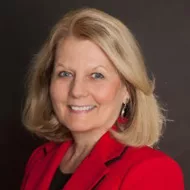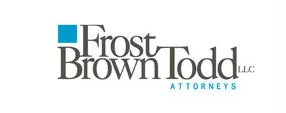 Author and pundit Eleanor Cliff said the following about the American suffragists: “They engineered the greatest expansion of democracy on a single day the world had ever seen, and yet suffrage faded from public memory almost as soon as it happened. The leaders built no monuments to themselves, and too many of their names have been lost to history.” This declaration could be applied to hundreds of thousands of American women advocating for social justice on a daily basis, the unsung heroes, deliberately omitted from our mainstream, classroom history books penned by the opposite sex. In fact, in 1980, the National Women’s History Project (NWHP) began a concerted effort to remedy this state of affairs when they determined that less than 3 percent of all content in our history books was about women (it’s only up to 5 percent today). NWHP is the organization behind Women’s National History Month. It is currently working to make August 24th, Women’s Equality Day, a national holiday!
Author and pundit Eleanor Cliff said the following about the American suffragists: “They engineered the greatest expansion of democracy on a single day the world had ever seen, and yet suffrage faded from public memory almost as soon as it happened. The leaders built no monuments to themselves, and too many of their names have been lost to history.” This declaration could be applied to hundreds of thousands of American women advocating for social justice on a daily basis, the unsung heroes, deliberately omitted from our mainstream, classroom history books penned by the opposite sex. In fact, in 1980, the National Women’s History Project (NWHP) began a concerted effort to remedy this state of affairs when they determined that less than 3 percent of all content in our history books was about women (it’s only up to 5 percent today). NWHP is the organization behind Women’s National History Month. It is currently working to make August 24th, Women’s Equality Day, a national holiday!
In the 19th Century, women, disillusioned with their lot in life as well as the unconscionable treatment of many others, became organized activists. In 1848, the Seneca Falls Convention held in Seneca Falls, New York, published a Declaration of Sentiments outlining the unacceptable treatment of women. Attendees boldly threw down the gauntlet and basically said that they were, “Mad as hell and weren’t going to take it anymore!”
The Declaration addressed dissatisfaction with the following: Women could not vote; they were not considered citizens under the Constitution; they had to submit to laws, the formation of which they had no voice; ignorant and degraded men had rights not given to women; married women were civilly dead and had to turn over their property and wages to their husbands, who had total power over their liberty; men took custody of children in divorce; women were precluded from advanced education (college) as well as professional careers as clergy, doctors and lawyers; they were not paid equal wages for equal jobs (sound familiar?); and so on.
Post-convention changes began adding up. Harriet Tubman escaped from slavery in 1849 and for 10 years, led slaves to freedom through the underground railroad. Colleges began to accept women and women-only colleges such as Mount Holyoke, Vassar, Wellesley and Smith were established. The successful vulcanization of rubber in 1859 provided women with reliable condoms for the first time, leading to a decline in the U.S. birthrate from five to six children at the beginning of the 1900s to only two or three by the end of the century. The Women’s Christian Temperance Union was founded in 1874 and when they joined in the suffragist movement, the liquor lobby came out against enfranchising women.
In 1890, Hull House, a settlement project in Chicago, was established which was followed by hundreds more around the country that propelled thousands of college-educated women into lifetime careers in social work. Women became a voice to be reckoned with in American politics as a result. In 1893, Hannah Greenbaum Solomon founded the National Council of Jewish Women. In 1896, Mary Church Terrell, Ida B. Wells-Barnett, Harriet Tubman and other prominent black women of the day formed the National Association of Colored Women. In 1897, the National Parent Teacher Association was formed to work exclusively on behalf of children and youth.
Women were making progress toward the goals enumerated in the Declaration of Sentiments, but they recognized that without the vote and a voice in the legislation that affected their objectives, they were limited in effecting permanent change on issues of paramount importance. The Progressive Era, 1890 to 1920, focused on social changes—none being more important than enfranchisement—and many women’s organizations joined forces and worked together. Members of the Greater Federation of Women’s Clubs, the Daughters of the American Revolution and nearly all the other organizations previously mentioned worked toward suffrage and equality for all women.
So, here we are not quite a century after winning the vote. Women’s enfranchisement and citizenship have made possible advancement in education, employment, wealth, civil rights, business ownership and parental rights. Women can now serve in the military, fly into space and perform heart transplants. We can apply for a loan and not have a man co-sign. However, the fight goes on. A genre of women-related business groups and organizations has materialized to support businesswomen. AAUW fights for equal pay for equal work. NAWBO monitors pending legislation affecting women-owned businesses and lobbies when necessary to ensure that it provides equal opportunities for its members to thrive and grow. That’s how we women are getting things done!
The moral of the story: Get involved and stay involved; it’s the only way to effect change for a positive outcome in your favor!
Pat Wirth is a long-time NAWBO member and currently serves as the Executive Director of the Turning Point Suffragist Memorial Association. Learn more at www.suffragistmemorial.org
        |

